Outdoors
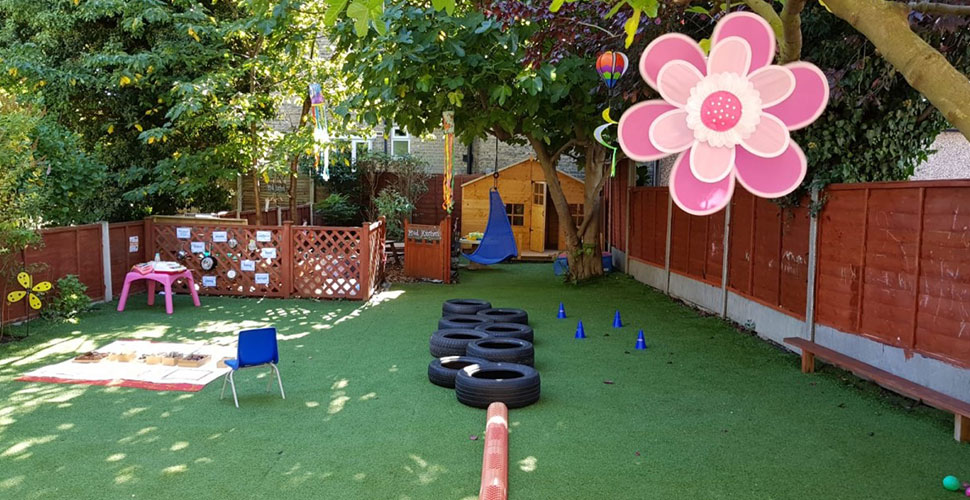
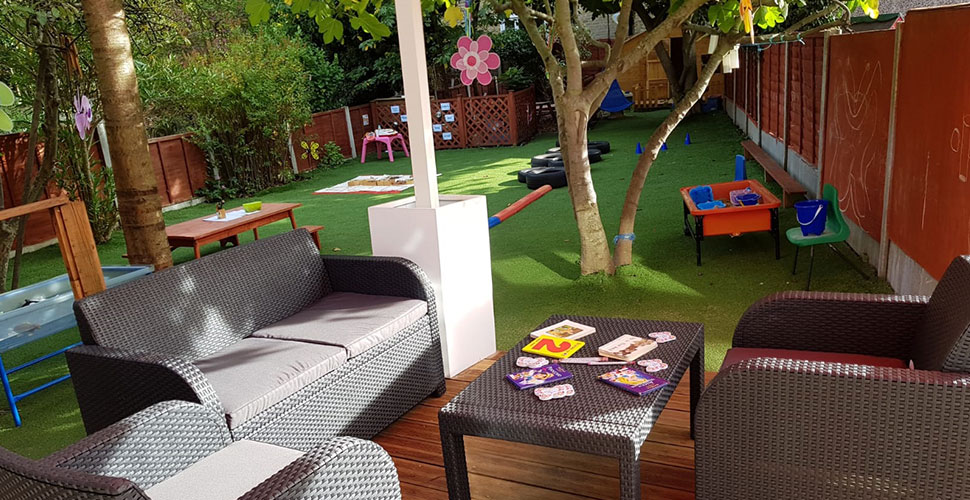
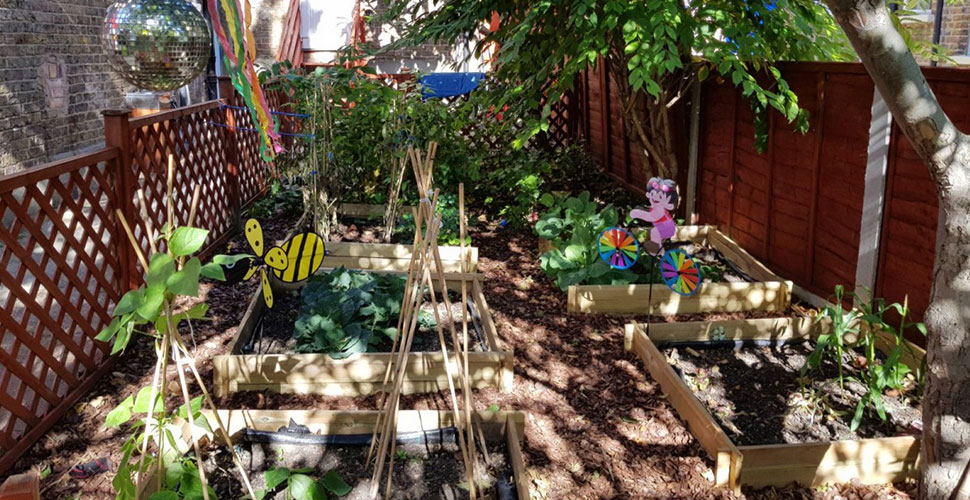
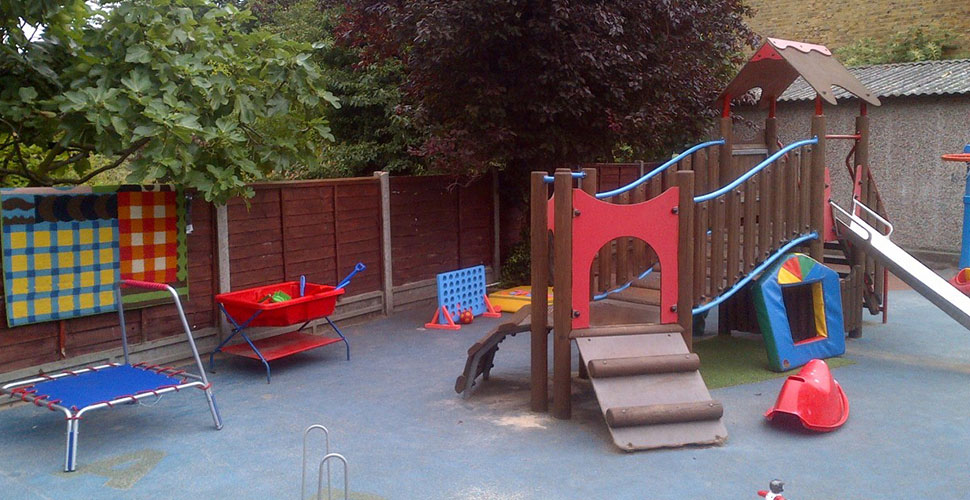
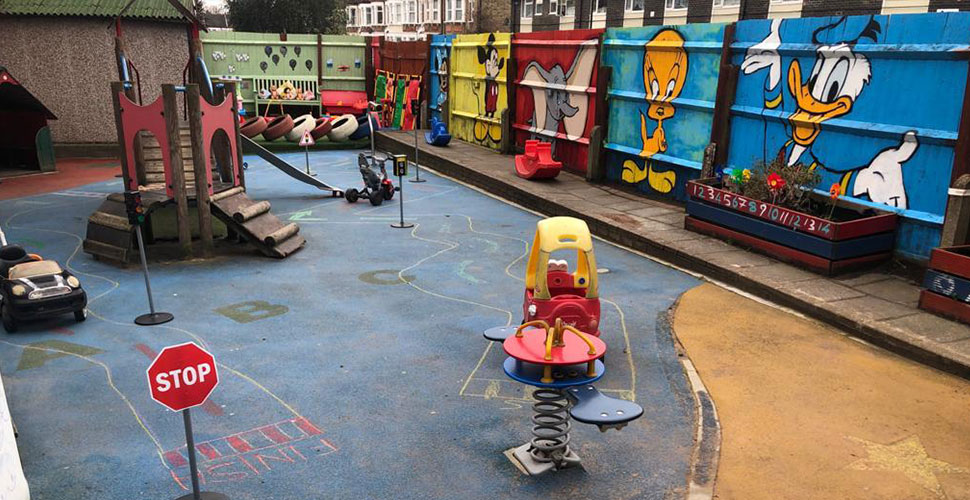
OUTOOR PLAY
Outdoor Play Area & Garden
Learning through play is simply more fun outside, so outdoor play is built into each morning and afternoon’s activities, unless the conditions are too severe to venture out.
At Faith Nursery Forest Hill, we believe in the importance of outdoor play and sensory enrichment for young children. Our children are encouraged to play and learn outside. The kids splosh about with water, build with wet sand, cook in our mud kitchen, dig in the dirt, plant flowers, hunt for minibeasts, paint, read, run around and get creative with natural materials. It’s the best place for messy and sensory play.
Safe Fun Environment
Our outside areas have been specially landscaped to create a safe and fun environment for the children to learn and play in, included grassed, hard surfaced and garden areas. The outdoor areas have all kinds of play equipment for the children to freely access.
No matter how good our indoor facilities, our outdoor area is key to the children's happiness.
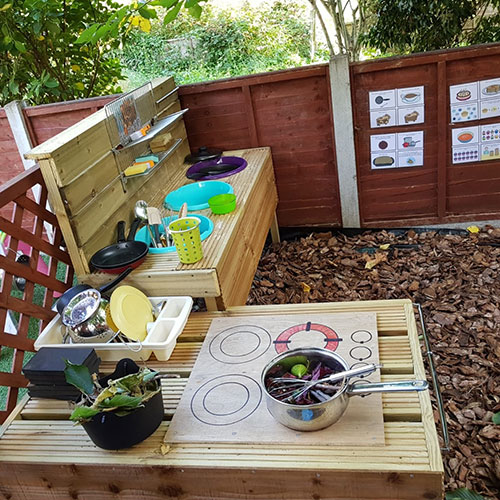
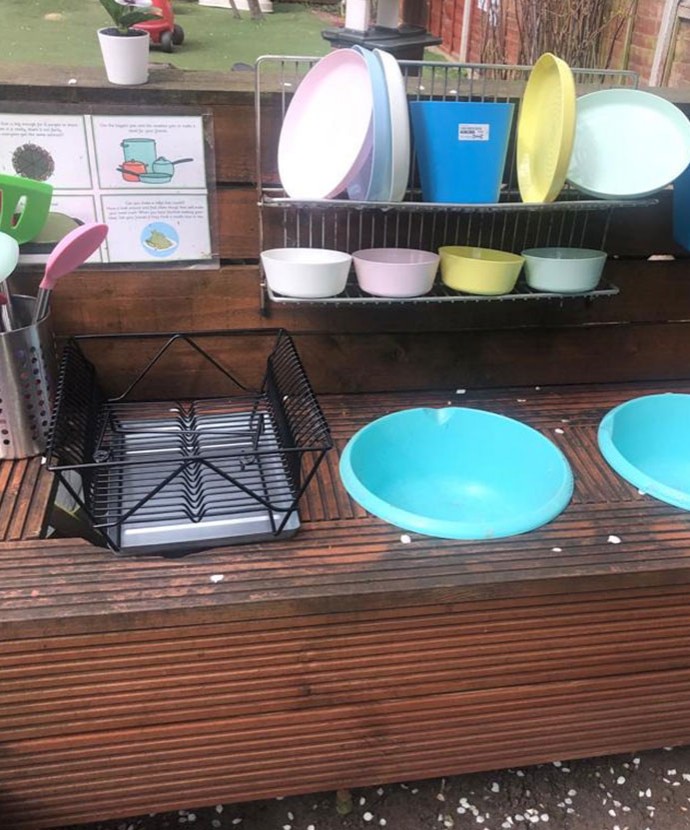
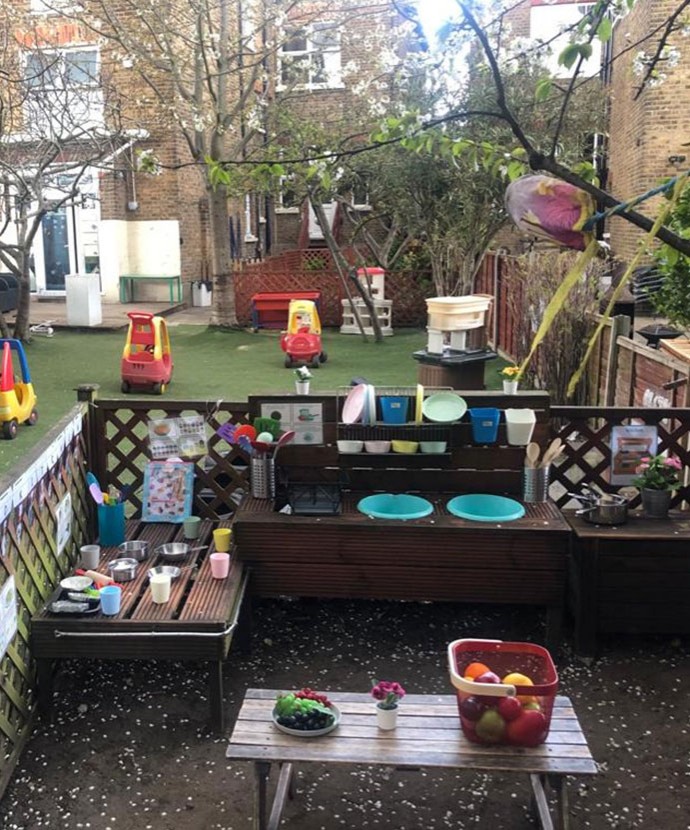
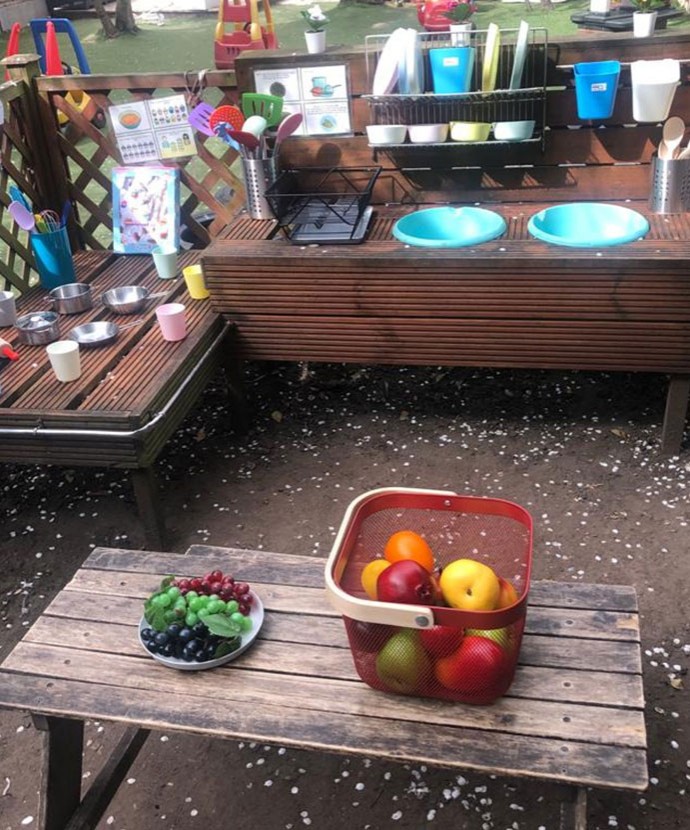
Mud Kitchen
Mud kitchens offer fantastic benefits for early child development through sensory play, role play, imaginative play, maths and hands on exploration!
We are huge lovers of outside play and learning and have spent many a happy hour watching the kids splosh about with water, build with wet sand, dig in the dirt, plant flowers, hunt for minibeasts and get creative with natural materials. It’s the best place for messy and sensory p lay because the clear up is minimal and the key resources are right on hand!
Mud Kitchens are more than just the chance to explore mud, get messy and have fun. They also provide a whole variety of different learning opportunities including sensory, imaginative, creative and exploratory play.
Below you will find out exactly what your child learns whilst playing in our mud kitchen and how it fits into the Early Years Framework
• Recreate everyday home scenes in play giving common element to help them connect with others.
• Sharing and taking turns.
• Problem solve and work well with others.
• Developing self-confidence by creating their own games and ideas for play.
• Talking, listening, describing and discussing what they are doing.
• Answering open questions about how they are making mud pies and what they are doing.
• Communicating with other children through role play games.
•Transporting/transferring water and mud using pots, pans, jugs etc.
• Use of kitchen tools, tongs, spoons, forks, all of which develop fine and gross muscle movements.
Maths
• Count items as they are added to the mix.
• Measuring water and other materials for mud pies.
• Using money in a mud pie cafe.
• Weighing the ingredients.
• Matching numbers to quantities.
Literacy
• Writing recipes for mud pies and writing on menus for the mud kitchen cafe.
• Letter writing in mud or sand with sticks.
Understanding the World
• Exploring the properties, colours and textures of mud and discovering how the ingredients affect properties.
• Exploring the environment through their senses.
Expressive Arts
• Re-enact the world around them.
• Use of imagination when creating pies (for example).
Vegetable Garden
We are very proud of our vegetable garden and enjoy gardening with our children especially during the spring and summer months. Being outdoors is great for children and they love the great outdoors. The fresh air works wonders for them, and outdoor activities keep them active.
Children enjoy planting seeds, watching them sprout, and eventually harvesting what they have grown. Allowing children to become involved in the planning, caring, and harvesting of a garden helps them develop an understanding of that which they are curious about – nature. Children also develop a sense of responsibility and pride in themselves, which can ultimately improve self-esteem. One of the best ways to encourage enthusiasm for gardening is appealing to a child’s senses by adding plants not only for the eyes, but those they can taste, smell and touch. Vegetables are always a good choice for young children. They not only germinate quickly but can be eaten once they have matured.
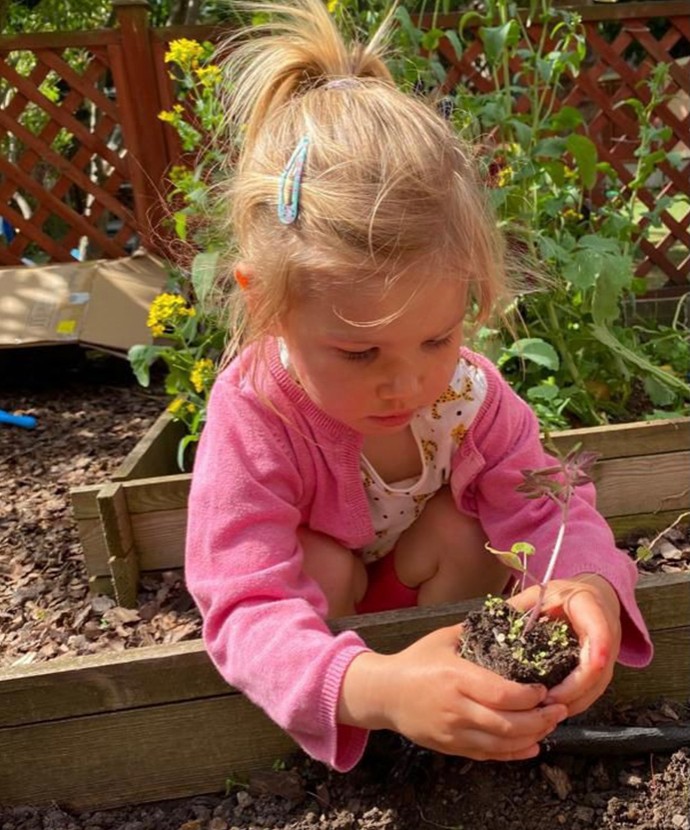
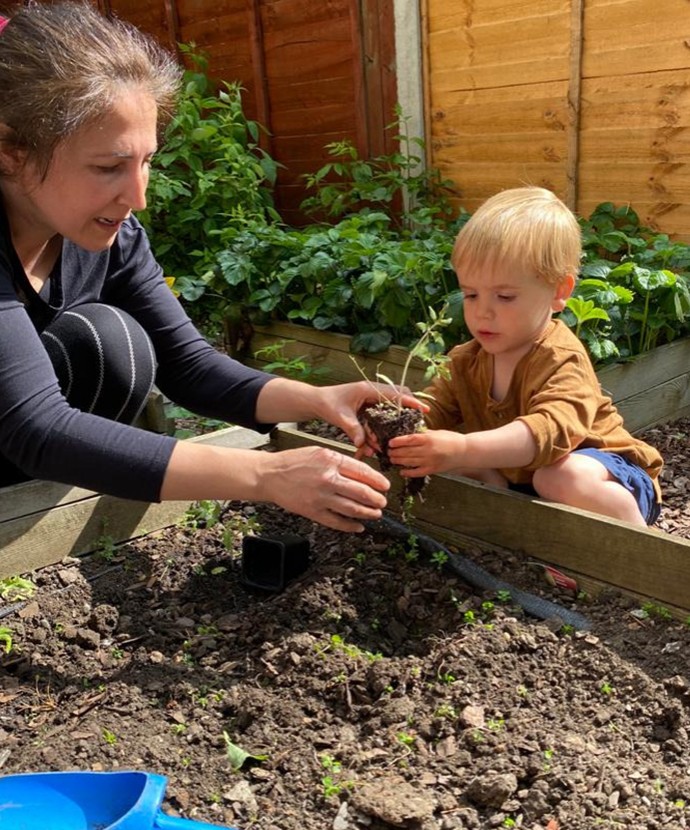
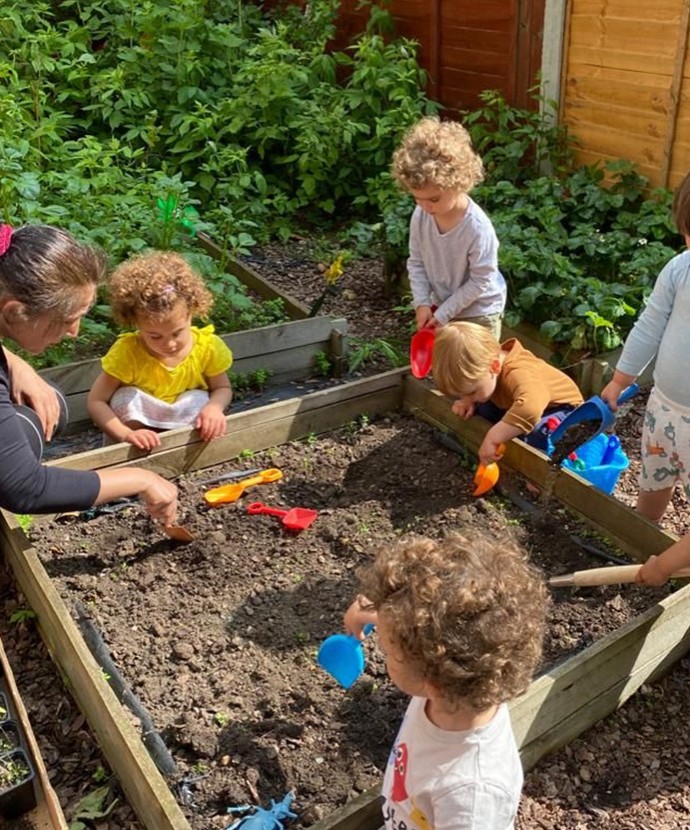
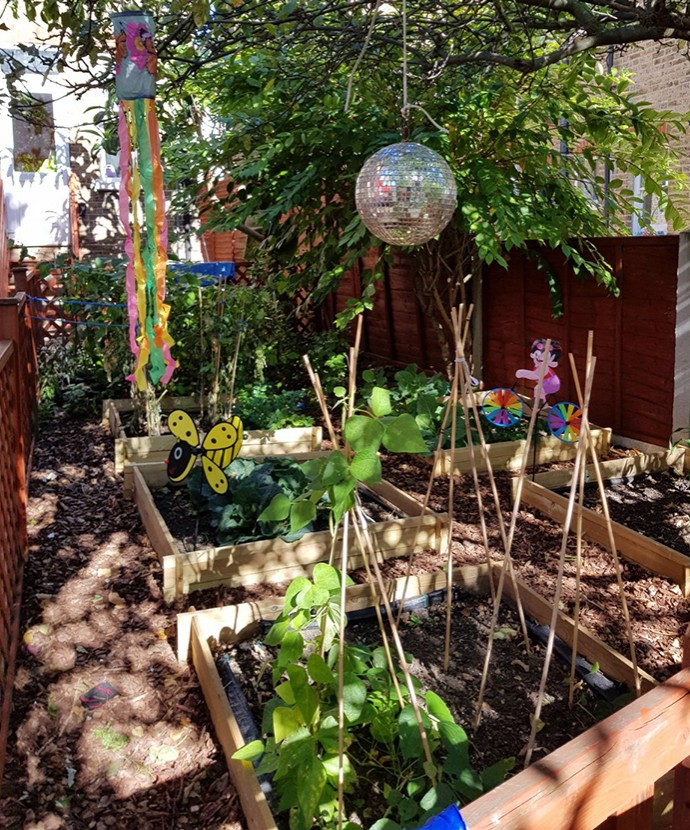
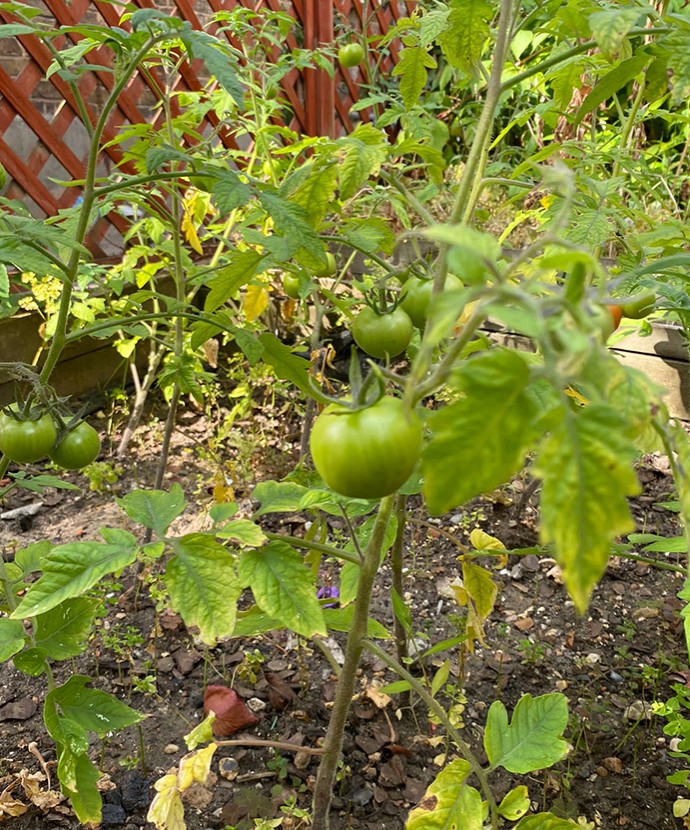
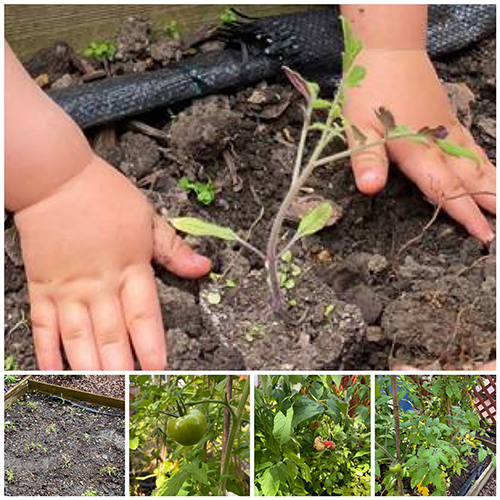
Garden Learning
Gardening also offers so many fun and interesting opportunities for children and teaches them invaluable lessons. They can learn about the different species of plants and what those plants need to help them grow.
They also get to learn about the different seasons, weather and the effects they have on the plants. Gardening also offers an opportunity to learn about different shapes and colours, and different animals and insects they might come across.

